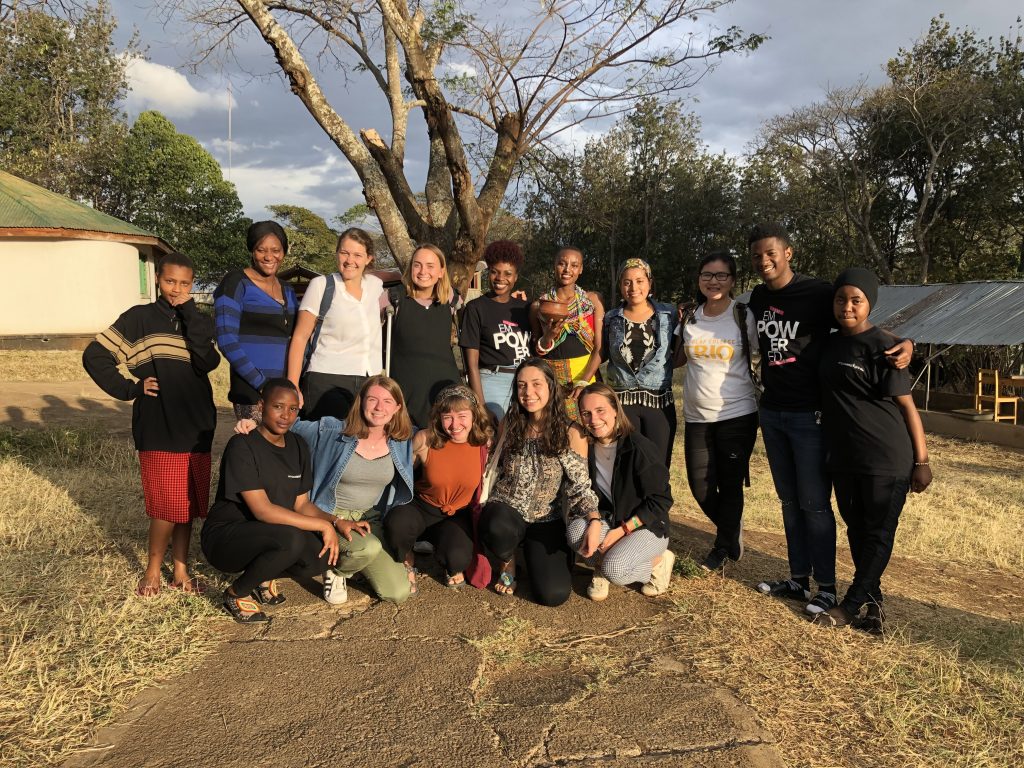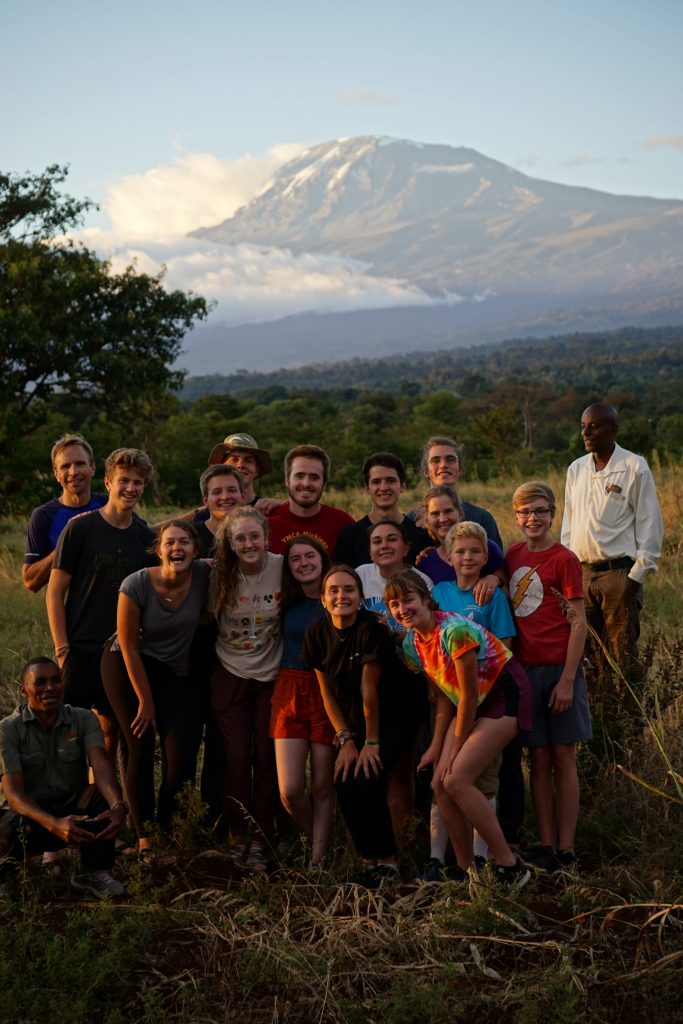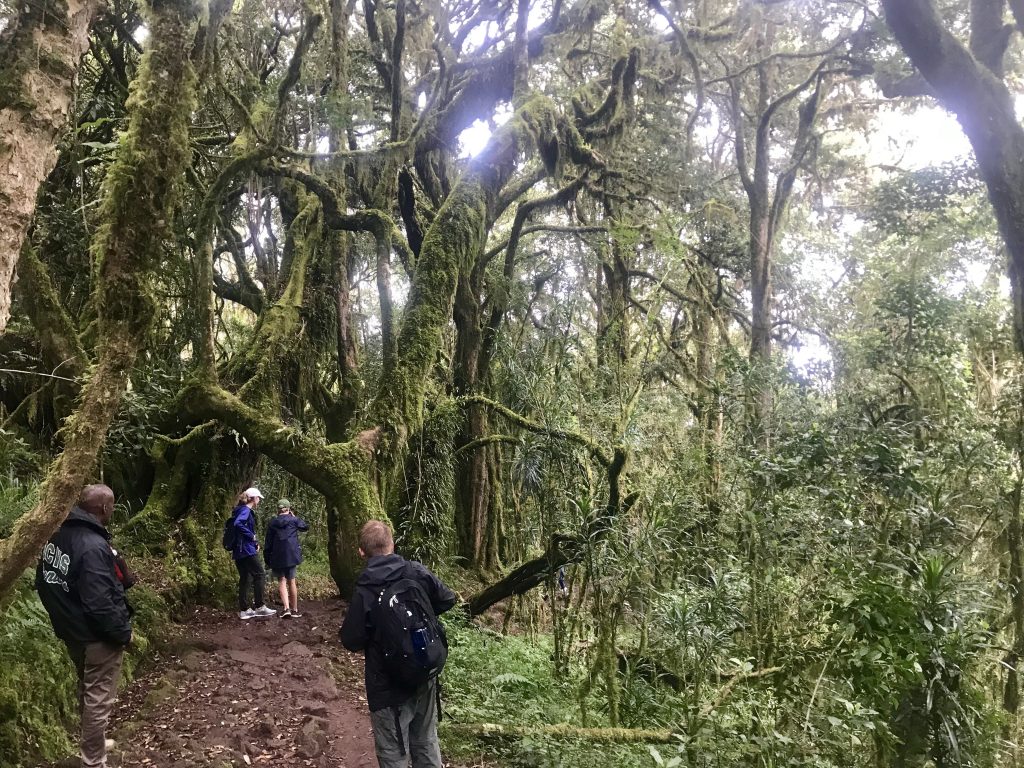Packing In, Before Packing Up

With October 2nd through 7th being our last full week in Arusha, it was only fitting that we packed as many classes, field visits, and adventures in as we could before leaving on the 8th. On Wednesday, we visited the Faraja Center, an educational center that provides job training to young, single mothers free of charge. The center accepts a group of approximately 25 women each year and the women stay at the center, taking hairdressing, baking, and sewing classes. Many of the mothers we interacted with had plans of taking these skills back to their villages to start their own businesses. While their mothers are in class, the children are cared for at either the daycare or the Montessori school that are part of the center. The center also offers a two year training program for people interested in running a Montessori school. Amazingly, all of the class materials in their teaching practicum room such as puzzles, shelves, and games were constructed by the teachers in training. At the end of their program, they’ll take the resources with them to start their own schools. At the end of the visit, the women kindly gave us an impressive musical performance in Swahili. In return, we managed to muster a relatively impressive performance of Beautiful Savior despite only about half of the group knowing it and then we sang our fight song, which everyone knew.
On Thursday, we visited the Usa River Rehabilitation Center, a center for differently abled people that provides traditional education, vocational training, health care, educator training, and more all under one roof. Our tour gave us the opportunity to meet educators attending Usa to receive specialized training to more effectively engage with students with special needs, discover the amazing artistic creations of pupils, and observe students in multiple vocational training classes. Students in the welding class were fabricating adaptive tricycles for differently abled people. One of the instructors who had graduated from the program in 1994 still uses the tricycle he built over 20 years ago. We also met youth studying cooking, and later tried some of their delicious work. The third vocational program that we saw was a tailoring class; taken by their craftsmanship in bold African fabric, some of us left the center with more clothes to cram into our suitcases. For the final portion of the tour, we were led to the facility where the center treats clubfoot in partnership with MiracleFeet free of charge, even covering transportation costs for families. During the visit, I was struck by not only the breadth but also the depth of training and care that the facility is able to provide. When I think of similar facilities in the US, I think of institutions that have a narrow focus, only serving autism or developmental challenges for example, but this facility is able to provide quality care and education to people with all kinds of conditions.

Upon our return to the Mwangaza Center, many of our female students ate lunch quickly in order to go meet 150+ young girls through an organization called Empowered Girls East Africa. The St. Olaf students interacted with the girls, asking each other questions to better understand the others’ culture, and shared things that made them feel empowered and proud to be women. My classmates returned deeply moved and inspired by a group of young women who were proud of themselves and motivated to change their culture in order to have a positive impact on their country.

After our final public health class on Friday, it was time for a group of us to leave for a hike on Mount Kilimanjaro. We loaded up the bus in order to make it to a hotel near the base of the mountain so we could get an early start on Saturday. A portion of the group stayed behind with plans of their own to explore local markets and the neighborhood. Towards the end of our bus ride, we were able to stop for photos alongside the road because our guide said that there was no guarantee of a clear sky for our hike, which turned out to be a very smart decision. The next day, we left our hotel early to start our hike as soon as the gates of the park opened. Our guides led us up the rocky five mile path to Madura Hut, the camp where those who summit the mountain spend their first night. Despite the on and off drizzle throughout the day, the group was in high spirits swapping stories to pass the time, marveling at the massive trees wrapped in vines, and excitedly observing monkeys up close. Our knowledgeable guides answered all of our questions regarding the mountain’s ecosystems and fauna. After eating lunch at Madura Hut, we descended five miles and 2,700 feet back down the mountain. On the descent, some of us came to the consensus that we had spent too much time looking down, picking our way along the uneven path that we didn’t experience the hike to the fullest by taking in the astounding environment around us. In spite of that feeling, the trip was still well worth it! The forest was astounding and we got to venture to a different region of Tanzania. Now I can say that I climbed Kilimanjaro, carefully leaving out how much of it I’ve climbed to have the desired effect.

Sunday was filled with group projects and our first paper for Professor Leer’s education course. Although we ran into issues with frequent power outages throughout the day, our groups still met to work on the final. The project entailed assuming the roles of CDC/USAID representatives in African countries and designing an HIV management plan tailored to the cultural and healthcare contexts of that country. We would be evaluated on our written report, budget, and oral presentation. The power outages caused all the groups to huddle in our classroom, furiously working on our reports, presentations, and budgets while the staff kindly ran the generator late into the night so we could finish. My group was one of the last to leave feeling reasonably confident about our proposed HIV management initiative for South Africa. Groups that finished a little earlier, had time to start their individual papers for education class. The paper called for us to reflect on quality education and its influencing factors through our experiences with the Tanzanian educational system.

On Monday morning, each group presented their comprehensive HIV management plans, after which they fielded questions about their program, and its budget, from classmates as well as Dr. Paul and Dr. Richard, two of our instructors. After lunch and a course debrief, everyone set out on their last adventures in Arusha. Some sought out last minute gifts, others spent time with local friends; some tried to finish a few loads of laundry in order to prepare for a week and a half of seemingly constant travel. Initially, I planned on staying in to write my paper and pack but I was easily persuaded to venture out for one final soccer game with local children. The game was a blast but ate up the entire afternoon, which my education paper eventually reflected, but it was worth it. Monday evening, all Global Semester participants piled on to a bus for a final celebration of our time in Arusha, Tanzania with music, food, and dancing! We were joined by Mwangaza Center staffers, Evangelical Lutheran Church in Tanzania employees they helped us a lot throughout our visit), and course instructors that made our stay in Tanzania a life changing one. Their genuine warmth and support of our academic and personal growth made our stay amazing.

In what felt like a flash, our month in Arusha was over even though I feel like we just arrived at Mwangaza two weeks ago. When looking back on our whirlwind month, I recalled the conversation that I had with others when descending Kilimanjaro about feeling like we missed out on the big picture experience as we were too focused on the next obstacle. It’s a feeling that I share about Global Semester too. Sometimes I get so wrapped up in the next class, the next assignment, the next outing, or even the next flight that I forget to sit back, take a breath, and reflect on the program as a whole. We’ve been presented with a phenomenal opportunity to learn so much, and not just in an academic sense. As we move forward and leave Arusha, I’ll be striving to make reflection more routine for myself. Reflection may not offer answers to the issues and questions that our group wrestles with, but it will certainly make the program more meaningful.
— Sam Bailey ‘21
You must be logged in to post a comment.